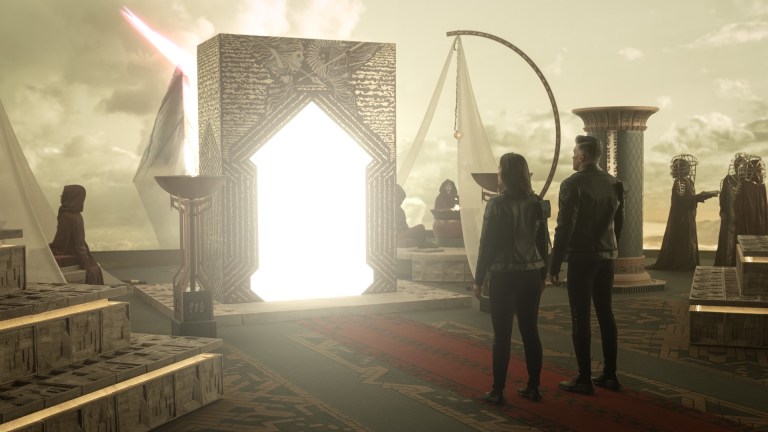Apparently Paramount Skydance Will Just Buy Everything Now
Perhaps having two or three companies owning the entire media landscape is a bad thing.

If it feels like it was only a month ago when we had our last major bit of corporate media consolidation, there’s a good reason for that. It literally was just over a month ago when billionaire David Ellison’s Skydance Media closed its merger with Paramount Global, forming the titanic Paramount Skydance.
Now, before Stephen Colbert’s body is even cold, the newly-formed mega corporation is on the prowl for more competitors to eat and, according to multiple reports, it has found its target. Paramount Skydance has engaged with investment banks as it prepares an offer for Warner Bros. Discovery, with a bid set to arrive as early as next week.
From a business perspective, it certainly makes sense that Warner Bros. Discovery would be amenable to an acquisition. Under the David Zaslav regime, the once venerable conglomerate hasn’t exactly been the best steward of itself. The company’s announced plan to split in half to become Warner Bros. (housing HBO Max and Warner Bros. studios) and Discovery Global (TV networks) is a tacit admission of failure, and Paramount Skydance’s apparent interest in buying both halves of the business before the split is complete must sound pretty appealing.
Corporate consolidation has always been a feature, not a bug, of capitalism, but the streaming era has seen that shrinkage accelerate in some truly extreme ways. The Walt Disney Company’s acquisition of 21st Century Fox in 2017 set off an unprecedented media sector arms race in which the only mantra was “grow or die.” In fact, both companies involved in this potential Paramount Skydance/Warner Bros. Discovery merger have been involved in multiple other transactions throughout. Paramount merged with its longtime ally ViacomCBS in 2019, and Warner Bros. dumped Time Inc. in 2014, got bought by AT&T in 2018, merged with Discovery Inc. in 2022, and planned to split itself once again in 2026. Warner Bros. is basically the Forrest Gump of the streaming age… which is fitting since that Robert Zemeckis film is a Paramount property.
Of course while the deal might make sense on paper for the enormous entities involved, real life isn’t lived on paper, and there will be tangible consequences for the employees, consumers, and the world at large. Workers within Paramount were already staring down the barrel of likely layoffs as the combining of two companies made multiple jobs redundant. Now those same workers will have to endure two acquisitions. The aforementioned Stephen Colbert situation hammers home just how expendable anyone can become in these situations.
Then there’s the rest of us. What does a world of a combined Paramount/Warner Bros. look like for us? Not great, Bob! Once the FCC decides a deal is in the public interest (which: lol), the following brands will be owned by the same entity: Paramount Pictures, Paramount Television Studios, Paramount+, BET, Nickelodeon, MTV, Comedy Central, Showtime, CBS (and all affiliates), Paramount+, Warner Bros. Entertainment, DC Studios, Fandango, all Turner properties, New Line Cinema, The CW, HBO, HBO Max, and CNN.
While that list is big and overwhelming, it’s the way in which the informational landscape will get smaller that will be more concerning. Should this acquisition go through, all of the biggest brands in traditional film and television media (NBC, CBS, ABC, Fox, Warner Bros. Studios, Universal Pictures, Paramount Pictures, Walt Disney Company, Columbia Pictures) will essentially be consolidated down to an ownership of four (Paramount/Warner, Disney, NBCUniversal, Sony). From there it’s only a hop, skip, and a jump to two. And while you’re on two, you might as well bring things down to one.
This narrowing of diversity and competition is a surefire way to make art worse, plain and simple. Even more troubling, however, is the ways in which it could curtail social, cultural, and political dissent. Both Warner Bros. and Paramount have their own news and informational products in the form of CNN and CBS News. Taking one of those off the board via consolidation is another brutal blow to already gut-shot media landscape. And that’s even assuming that any combined entity would still be invested in any level of media independence and sound journalism, which recent evidence suggests that Paramount Skydance is not.
All for a Harry Potter/Star Trek crossover that nobody asked for.